The pocket pilgrimage and Year of Hope
A story of Vancouver rain, transit discomfort, and the realization that hope is always an option
By any standard, the Vanspec Alumni Association’s pilgrimage to Vancouver’s Holy Rosary Cathedral wasn’t much—only about 30 minutes of total travel time if everything went well. Five wet blocks to the bus stop, ten minutes on transit, and another five wet blocks to the cathedral. It was definitely not the Camino, but it was more than enough for a tired father of three to participate in the Jubilee Year of Hope. It also reminded me that sometimes God’s gifts are disproportionate to the effort you put into your spiritual life.
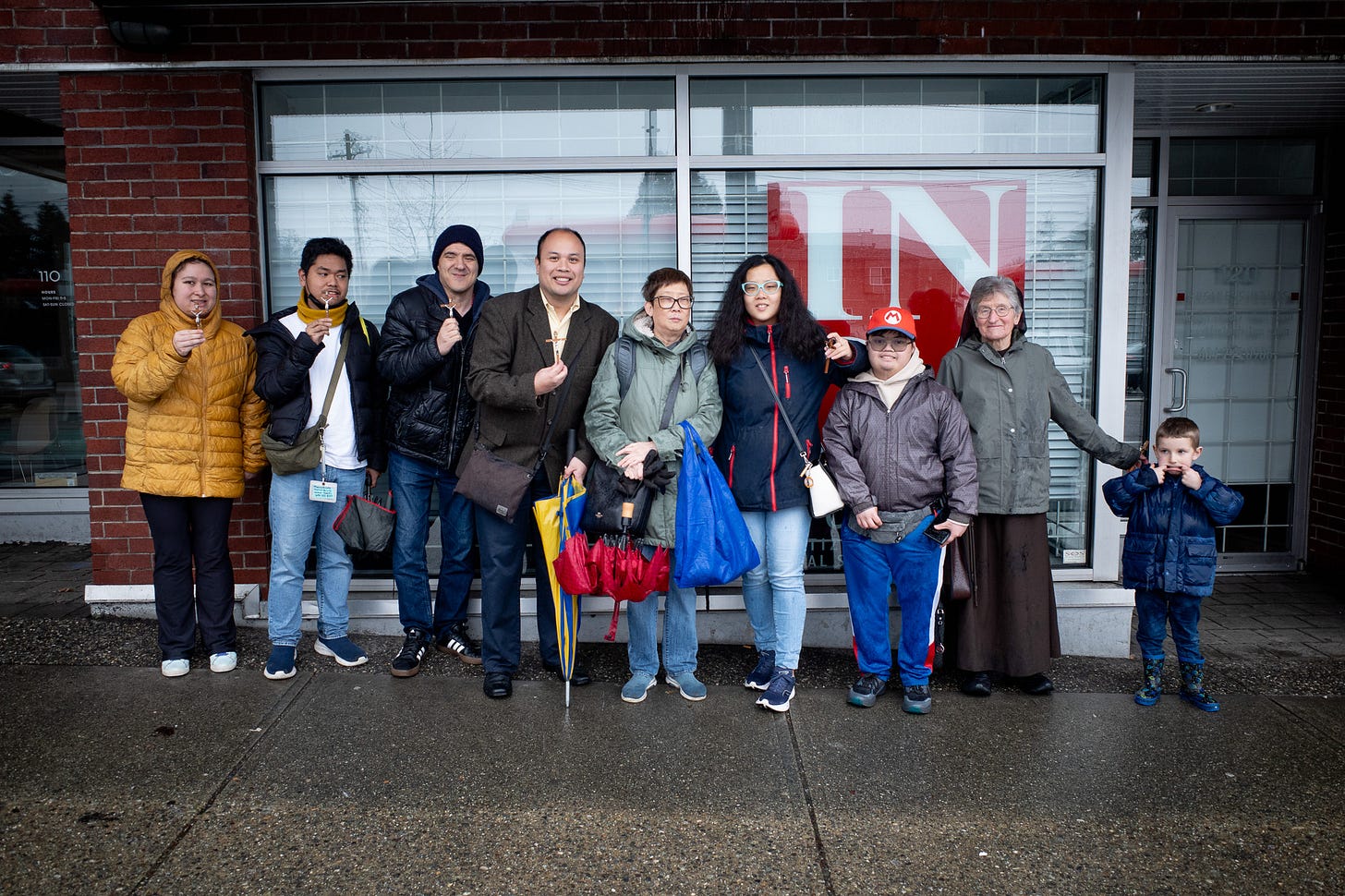
Our journey began at the Vanspec facility on Venables Street, where the organization provides catechism and religious formation for individuals with mental disabilities preparing to receive the Sacraments. Our companions were members of the Vanspec Alumni Group, and many had either Down syndrome or clear signs of autism. It was a merry band in spite of the rain.
My son, Thomas, was walking with us. He has autism, too, although he doesn’t know it, and most people can’t tell. He was merry, too, and even though he sometimes cries when his pants aren’t soft enough, he kept a brave face and weathered the downpour well. I was a proud father.
My wife was going to meet us at the cathedral with the rest of the family.
I wish I could tell you my participation was prompted by religious zeal, but alas, I was there because Vanspec’s director, Sister Mary Margaret Delaski, FSE, had cornered me at a buffet table the day before. Vanspec needs more promotion, she told me—I agreed enough to get wet.
At the outset of our journey, Thomas received a blessed crucifix and hugged his mother like someone going on an adventure. This was when the rain was at its worst, and we got to the bus stop just as our bus was pulling away.
We chatted with some other pilgrims as we stood beneath an overhang.
We met Jacob, who told us he attends alumni events for “the pure enjoyment.”
“The people are so fun to be around—you never know who will make themselves felt,” he said. This struck me as a beautiful way to describe being around other people.
He introduced us to John: “John and I dub ourselves the Vanspec OG,” Jacob informed us. And they certainly are. John has been part of the Vanspec community for almost 50 years. He wanted my thoughts on the Super Bowl and told us he had given up chocolate for Lent.
Later, on the bus, Thomas and I played ‘I Spy’ while the Downtown Eastside poured by, the window separating two conflicting visions of mental disability. Inside was the friendly, well-cared-for company of the Vanspec alumni, many accompanied by parents even in middle age; outside were the drug-rattled lives of the Downtown Eastside residents, many of whom had been victims to misfortune and mental illness long before the drugs ever found them.
I never know how much Thomas notices or understands in these situations. Sometimes, he is quick and attentive when something piques his interest, but often, that focus distracts him from the ordinary happenings of life. Thomas clearly noticed the people outside. Once or twice, he stared intently at shadowy figures, bent double by a life of drug use and untreated health conditions. This time, no questions, but they may still come.
The Jubilee Year of Hope has come at a weird time for me. On the one hand, I completely understand why it’s happening—the world seems unstable, and people are stressed and angry about things they can’t control and often don’t fully understand. They have become obsessed with the material, with the here and now. For myself, here is in Canada, where a decade of political misconduct has left a crumbling social fabric wrapped around an astronomically high cost of living. On top of that, the Greater Vancouver Area—our home—is already among the most expensive places to live in North America.
I’ve been struggling with what hope means in this context; what it means for the people we passed on the street, tucked into corners and doorways, trying to get away from the rain. I think the answer lies in the pilgrimage itself—a material prefiguration of the spiritual journey we will all take one day—or perhaps the journey we are already taking. First, we trudge through the misery and rain, then sit in a smelly public bus, and finally, we emerge out of the world into the vaulted halls of God’s house.
If I’m being honest, that’s not the answer I want. I don’t want to hear that hope is directed towards some intangible reality I can hardly comprehend—one I can only really accept on faith. I want the Church to tell me that groceries will get cheaper, that the next prime minister will care about his country, and that everything will work itself out here and now. Instead, the Jubilee Year of Hope—with its emphasis on pilgrimages—tightens its belt, laces its boots, and taps its walking stick, reminding us that this isn’t our home. We aren’t meant to be here; we are sojourners in this valley of tears—not permanent residents. Is that good news? I know I should say “yes,” but it’s hard. Lately, life East of Eden has felt as cold as a rainy Vancouver day.
When we arrived at the Cathedral, Sister read a prayer under the shelter of pilgrim umbrellas and told us we were passing from the physical into the spiritual world. “That is always a special thing,” she observed.
Sacramentalism is beautiful. Under the graceful umbrella of Church understanding, the world and everything in it becomes the poetry of God. Even Holy Rosary Cathedral, a soaring structure of stone and glass, melts away, turning into nothing more—or less—than a tiny cosmic representation of heaven itself. Stone becomes immaterial, or perhaps extra-material. I can go either way, depending on my mood.
This isn’t the way it seemed at the time—sometimes you get the burning bush, sometimes you just get wet. But reuniting with our family inside the cathedral offered a lesson. If the pilgrimage takes us through the struggle of the material world towards the highest good, towards Christ and his Church, then having my family there, waiting inside the building, reminded me that these people—the real flesh and blood people—are essential. It reminded me that the material world is essential.
Perhaps this observation is a bit on the nose—it’s hard not to feel hopeful watching your two-year-old daughter tear around a near-empty cathedral. But this is what marriage and the children it produces are for—one of the things, anyway. Much like a Church or a pilgrimage, family takes you out of the world and gives you companions on the path to God.
This revelation is more than I expected from the short trip. I thought I would take a walk in the rain, take a few photos, and show my kids the cathedral. What I got instead was a reminder that God works through all things. The pocket-sized pilgrimage showed me that no matter what happens, the world will always reflect who God is and where we are meant to be. All signs point to God, even Vancouver rain, and if that isn’t something to be thankful for, I don’t know what is.


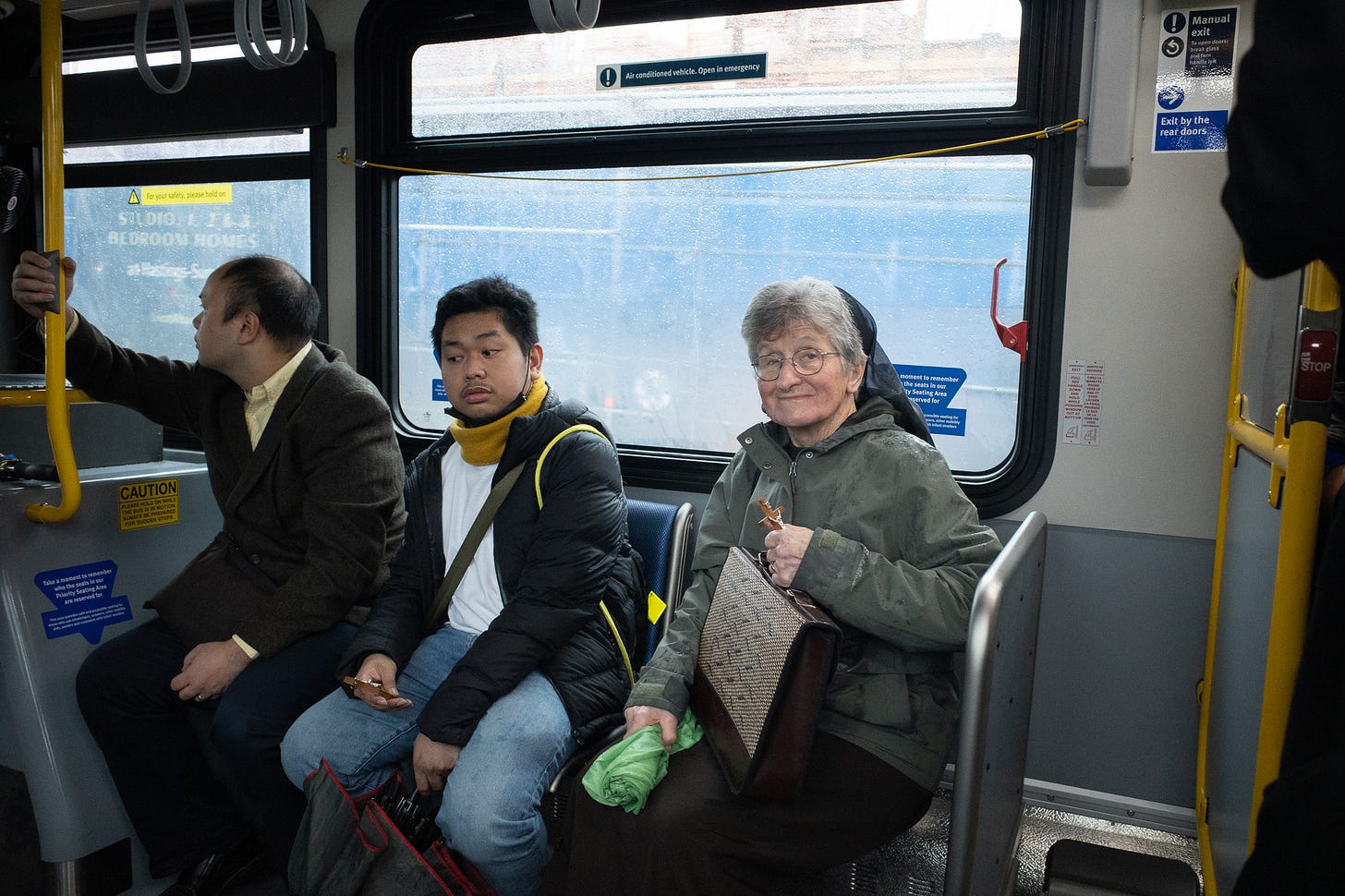
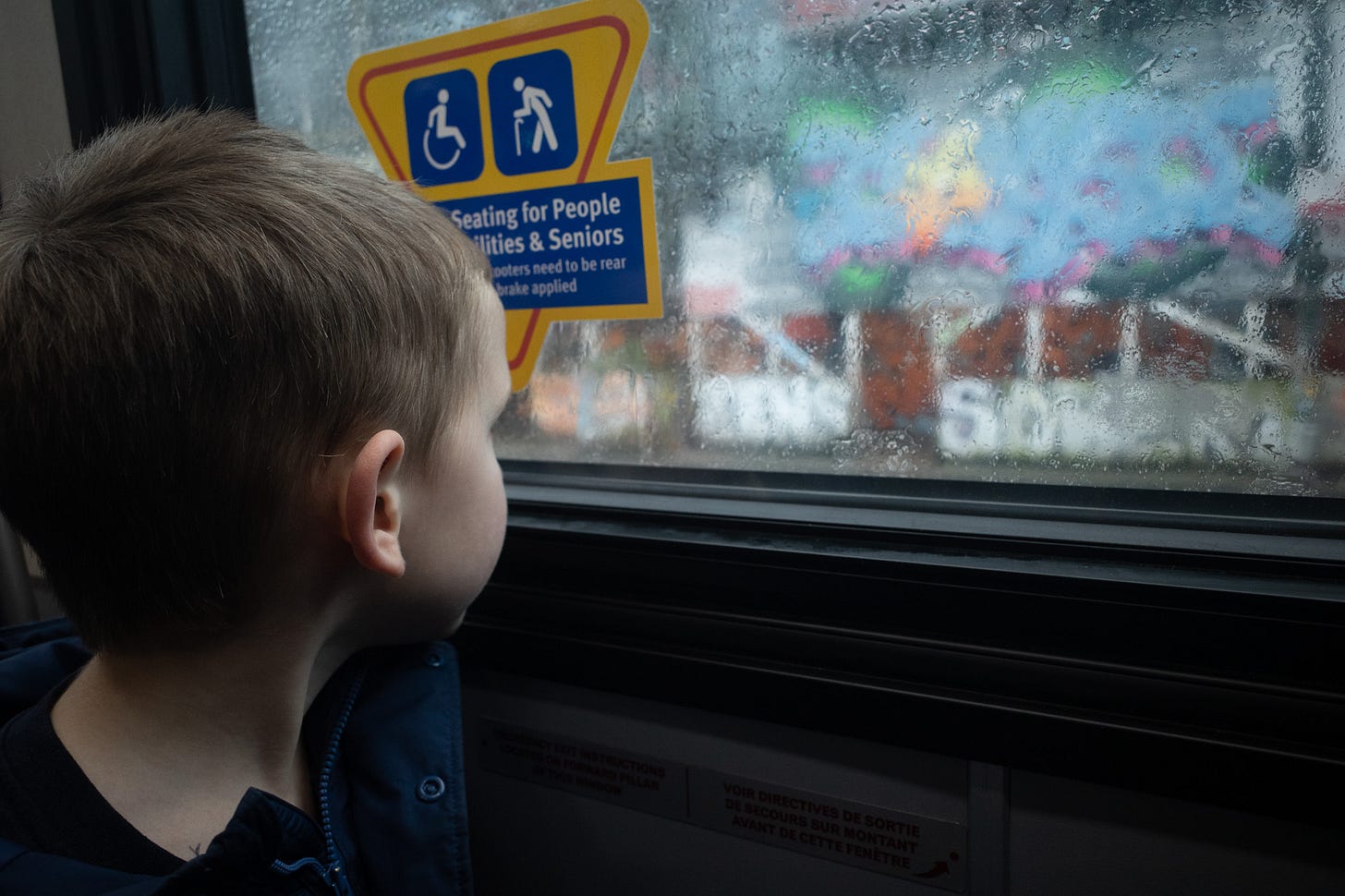
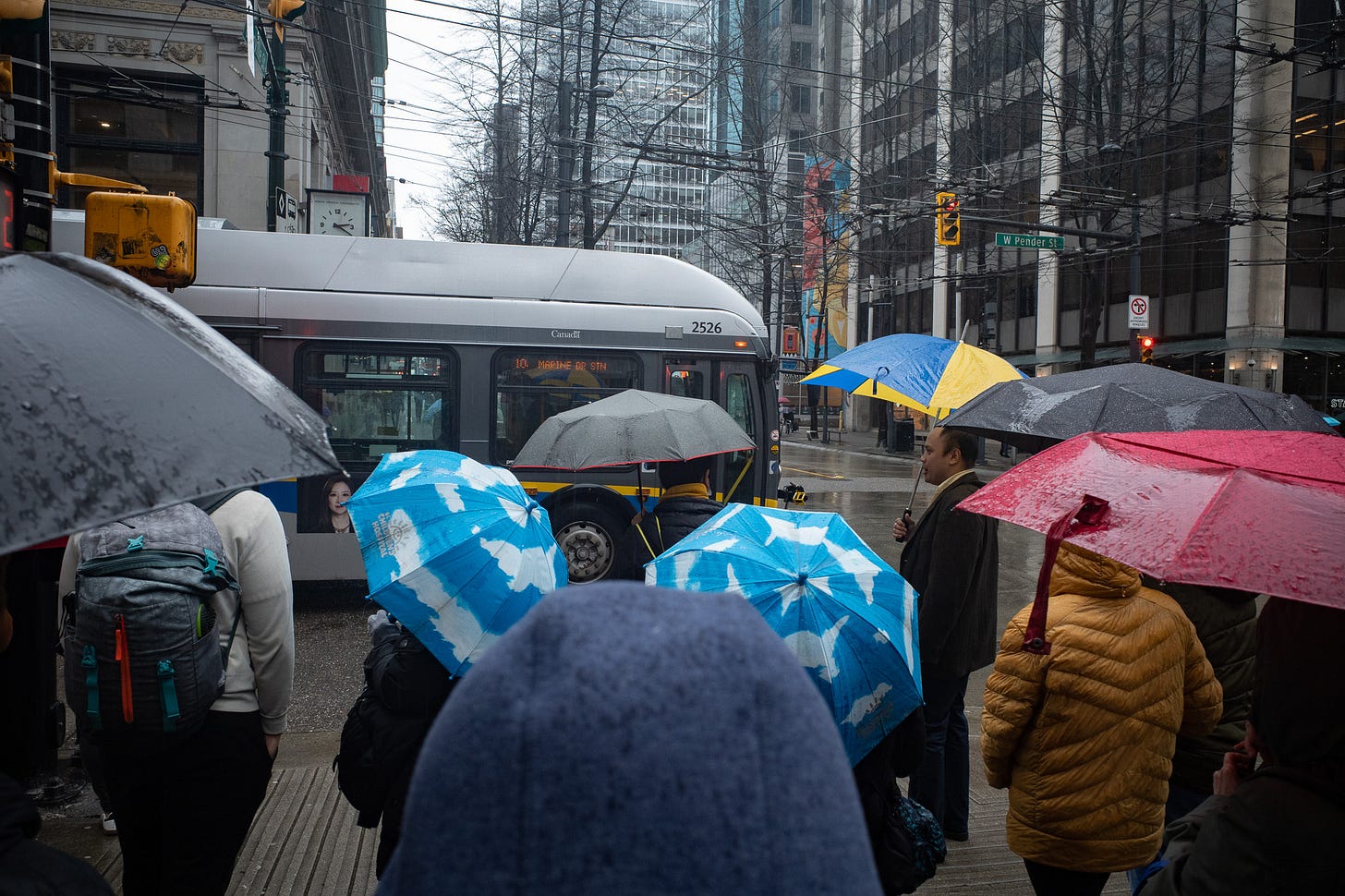
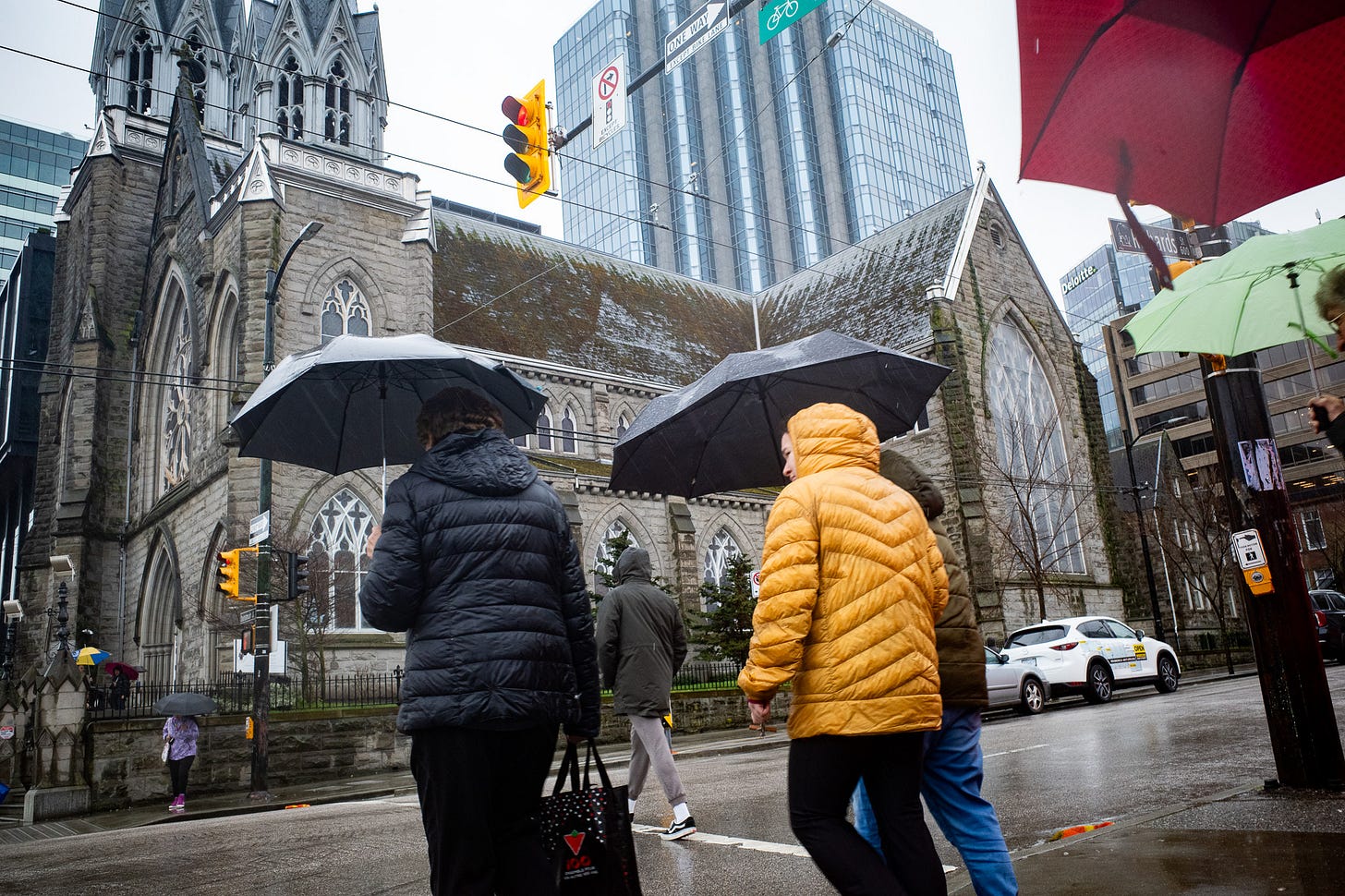
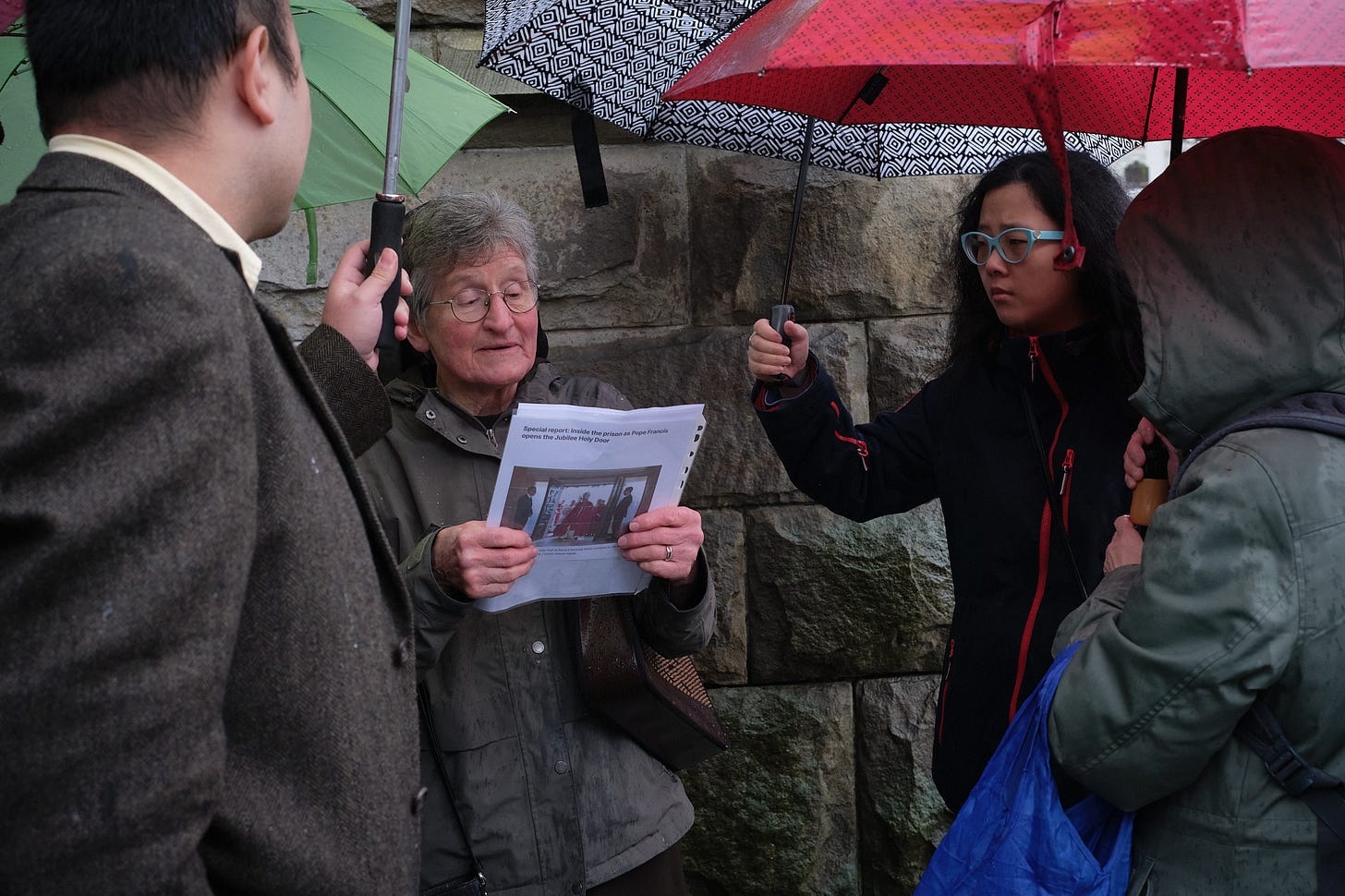
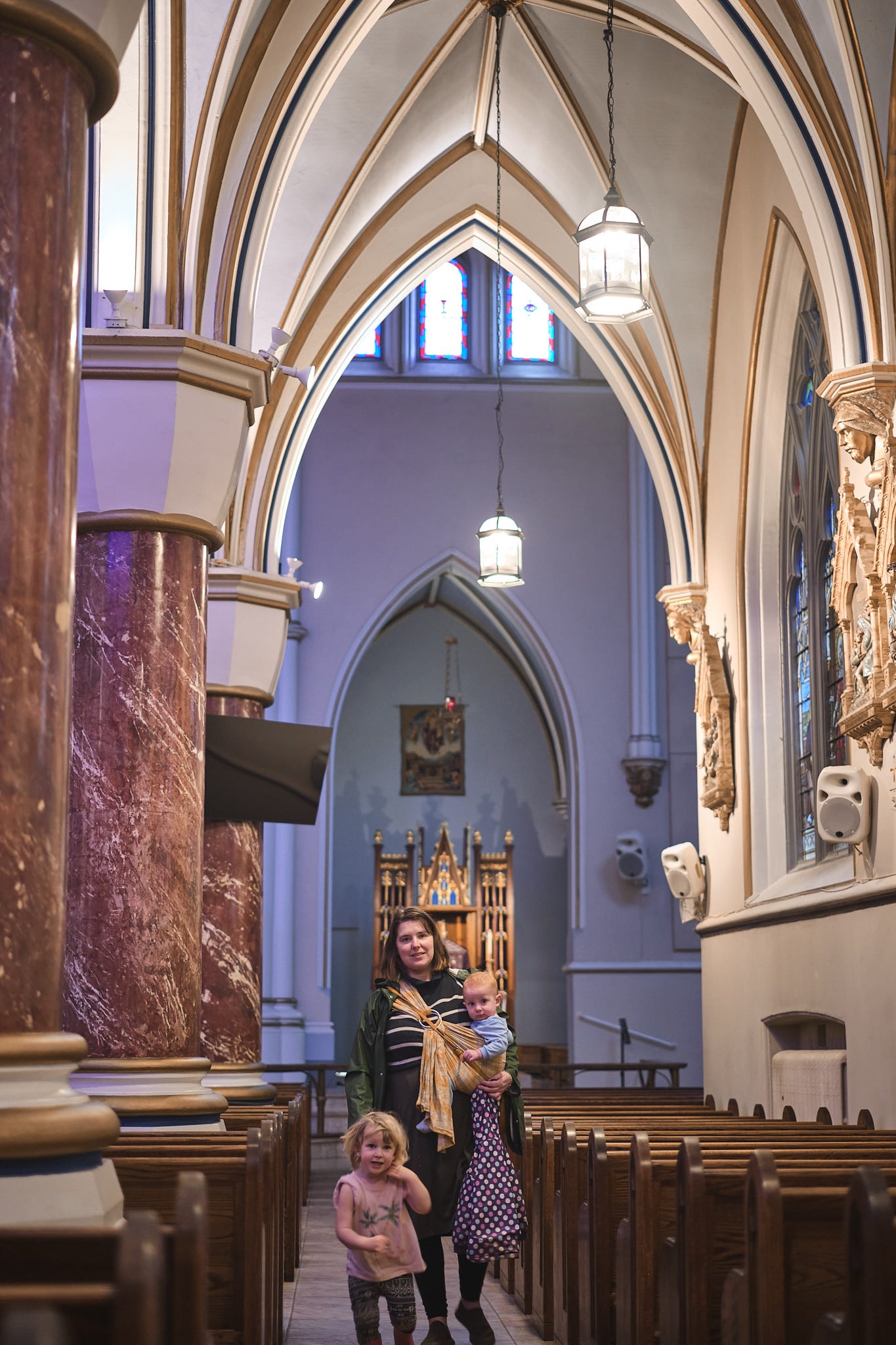
I have a son with autism and I am old, so I have had decades to read about causes, triggers and ways to improve symptoms.(No more vax, no Tylenol, no NSAIDs, no dairy, no gluten etc) I think Canada must be terrifying with its MAiD numbers going so high and including too many disabled 😢. I think the program to bring disabled people into the Church is a beautiful counterpoint --💕 wish that particular program was here. A small pilgrimage seems beautiful too, even though you mention bad smells and rain. Parents do become acutely aware of sensory stressors in the environment. 🙂 I'm glad I had the opportunity to read your small slice of life.
Beautiful, absolutely lovely!!!!!!!